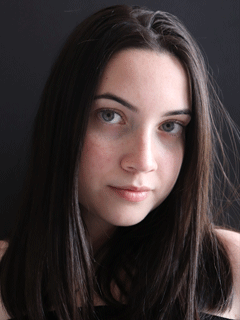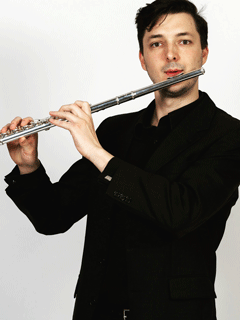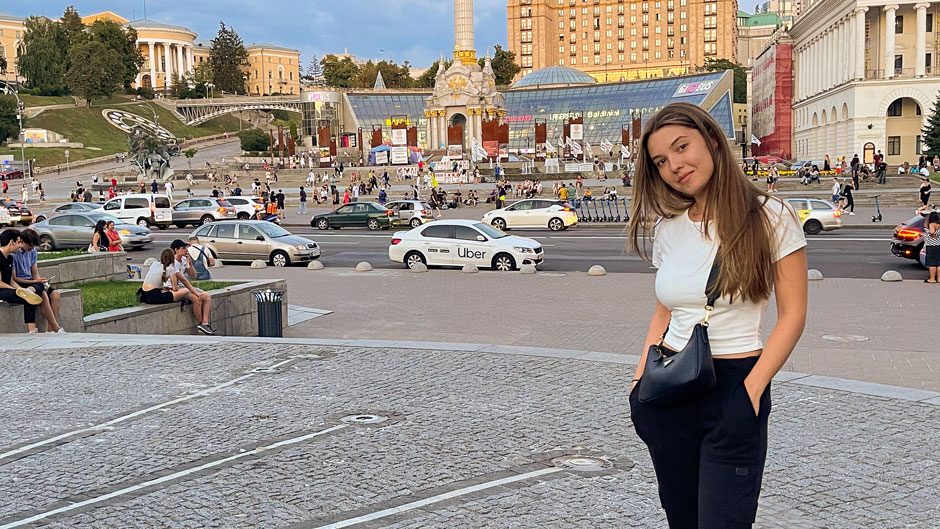Kateryna Ghandour, a senior at the University of Miami, is trying to stay focused on her studies but cannot shake the concern for her family and childhood friends scattered across Ukraine who have been messaging her frantically from bomb shelters.
Each morning, Ghandour tries to call her maternal grandmother, who is in her 70s. Cell phone service is spotty, and her grandmother lives alone in Ghandour’s hometown of Yakymivka, in southern Ukraine. She usually gets through once every few days.
“It’s a lot to take in, and it’s not a pretty picture,” said Ghandour, an international relations major who fled her native Ukraine as a teen with her parents in 2014 and now lives in South Florida. “I have many friends saying they will not make it. One was even on the bathroom floor hiding while shooting was going on outside her apartment.”

Junior Elizabeth Fridman watches her mother call a roster of cousins and friends daily who live in Kyiv, hoping they are still safe, and speaking to them in her native Russian. With each call, the fear in their voices is palpable.
“They are scared to sleep because they feel like they may never wake up again,” said the public relations major. “They have been hiding in bomb shelters all day and night.”
These are just two of a handful of members of the University community who have roots in Ukraine and are struggling with the fact that they cannot physically support their friends and family living in a war zone.
With the ease of recording videos on cell phones and the advent of social media, the war in Ukraine is more public than most. Therefore, Ghandour’s phone is flooded with images of danger and destruction. It is not just the people she loves haunting her dreams but also the immense damage inflicted on her home country, where she spent last summer visiting relatives and introducing her husband to the beauty of Europe’s second-largest nation.
“It’s very overwhelming—there are so many videos, pictures, and group chats,” Ghandour said. “But I am trying to share these videos so people will know the truth about what is happening in Ukraine.”

Doctoral music student and flautist Dmytro Gnativ is also concerned about the misinformation spread by Russian President Vladimir Putin. Gnativ grew up in Sambir, a city close to the western Ukrainian city of Lviv, but spent years traveling the country as part of a band and the Khmelnytsky Regional Philharmonic orchestra. He said Ukraine has endured Russian aggression throughout history, but especially during the past eight years, where troops have occupied Crimea and the eastern Donbas province.
“Now, everyone finally sees who Putin and his Russian supporters really are,” he said.
Gnativ also discounts Putin’s claim that Russians and Ukrainians are brother nations.
“We are not brother nations and never were,” he said. “We do not have the same mentality, language, history, heroes, values, or culture.”
Junior Diana Khodan, a member of the women’s tennis team, is from Ivano-Frankivsk in western Ukraine. She said the invasion was expected, and as the number of Russian troops, weapons, and other equipment along the borders grew, she realized that it was no longer just an intimidation tactic.
The first night of attacks, five bombs hit the airfield in her hometown. Since her family’s home is close to the airport, Khodan said her family and their neighbors were instructed to turn off their lights after dark so the city is not as visible to Russian troops.
“This is the worst nightmare, when people all over my home country woke up last night to explosions, sirens, military alarms,” she said the day after Russian troops invaded. “With each shot, our future simply crumbles.”
The students worry that Putin will continue killing people and bombing Ukrainian cities until the country is destroyed. Ghandour said the Russian leader is a terrorist because he is killing innocent people. Fridman called Putin a dictator.
“Putin doesn’t care about citizens or lives, so it’s hard to predict what will happen next,” Ghandour said, adding that she is not optimistic about the conversations between diplomats.
Both Ghandour and Fridman struggle with the fact that even Russian soldiers are confused by the purpose of this war, yet they are following government orders.
“They don’t want to be fighting,” Fridman said. “There are many stories of young [Russian] men being dropped at remote destinations in Ukraine and being instructed to kill people.”
Whatever the outcome, Gnativ said the Ukrainian spirit will be hard for the Russians to defeat.
“We support and fight for each other,” he said. “That’s why you see such an incredible resistance in Ukraine right now.”
Fridman hopes that soon Putin will back down and realize that Ukraine is not his land—and it never will be.
“It was a well-established country on its own, and I believe he will eventually see that,” Fridman said. “Since a lot of countries that used to support Russia are no longer supporting them, I hope he will drop this war so that no more innocent lives are at stake. The people in Russia didn’t want this either, and they don’t deserve it.”
Ghandour is glad she was able to visit Ukraine last summer with her husband, before the war, and to see her country the way she remembers it—as a warm and welcoming place with beautiful architecture and unique culture.
“I really love Ukraine. It’s a place you’ll never forget,” she said. “The Ukrainian people are amazing, and nothing has made us as united as this war. I wanted to go back to Ukraine, but it makes me sad that there might not be much to return to.”
Khodan urges Russian citizens—and the world—to speak up.
“We need to build, we need to move forward,” she said. “We want to live in peace. We want to live in Ukraine.”
—Reporting by News@TheU writers Janette Neuwahl Tannen, Ashley A. Williams and Megan Ondrizek.
For those who would like to support Ukraine, the students suggest the following:
Support for the Ukrainian Armed Forces, offered through the National Bank of Ukraine:
Humanitarian assistance:
International Committee of the Red Cross
https://www.icrc.org/en/donate/ukraine
Save the Children
UNICEF

